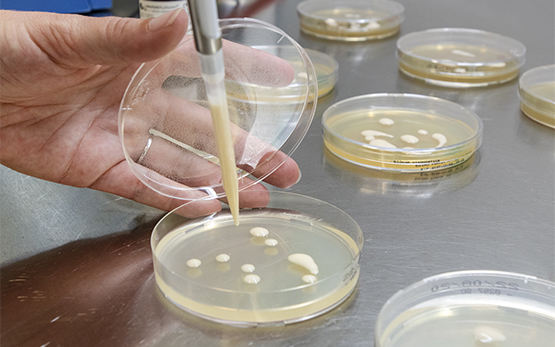Microbial biodiversity is of fundamental importance for the functioning of ecosystems. Key parameters in the agriculture and food sector can be significantly positively influenced by microbial communities (microbiomes). Plant, animal and human health as well as natural pest control, the decomposition of organic material, nutrient cycling and the processing of agricultural products via fermentation are examples of their impact.
The characterisation of microbiomes, the identification of key species and the understanding of their functions and interactions form the basis for developing strategies for the targeted use and control of microbial biodiversity. The targeted manipulation of the microbiome (‘microbiome engineering’) is intended to harvest the various positive effects resulting from the use of microorganisms in the agriculture and food sector. This allows us to increase yields whilst reducing fertiliser and pesticide use, thereby protecting the soil and the environment and enhancing sustainability. With foods, controlling the microbiome enables us to influence fermentation processes or shelf life, thereby improving the quality, safety and competitiveness of agricultural products.






